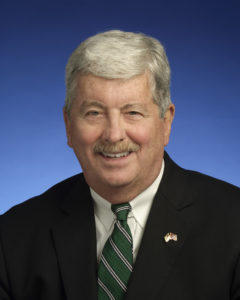Column: Lawmakers give Advisory Committee on Open Government opportunity for new life
A decade ago, in the spring of 2008, the Legislature created the Advisory Committee on Open Government to provide guidance to the newly created Office of Open Records Counsel.
The Legislature also gave the committee the ability to review and provide written comments on proposed legislation related to open records and open meetings laws.
But for most of the past 10 years, the group has barely met.
Aside from its initial whirlwind participation in setting a “reasonable fee schedule” for copies of public records, committee discussions have been so infrequent as to cause some who have attended to wonder whether even those were worth the time.
The open government committee is made up of 14 members appointed by the Comptroller’s Office plus a designee of the Attorney General and the chairs of the House and Senate committees that most often hear legislation related to public records.
(Tennessee Coalition for Open Government has a spot on the committee, filled by its board vice president, Adam Yeomans with the Associated Press.)
This year, the Advisory Committee got a spark of attention from lawmakers — and even outgoing Gov. Bill Haslam — largely because of the interest of Lt. Gov. Randy McNally, R-Oak Ridge.
That’s not surprising. McNally chaired the Joint “Sunshine-in-Government” Study Committee that recommended creation of the diverse group.
An update to the statute about the advisory committee has passed the House and Senate. The change clarifies the purpose and duties of the committee, but more important, requires the committee to elect co-chairs who can jointly call meetings as often as they want, thus providing a measure of independence.
The governor even assigned ACOG a task for 2020: A report on the impact of a new law (also headed toward passage) that allows candidates for college presidents to remain confidential except for one to three finalists selected by a search committee.
ACOG was designed to deal with thorny public records issues
I know it sounds a little loony, but one of the logistical problems with the committee is that it has only met when the Office of Open Records Counsel has called a meeting. It usually met once a year, often with several participants calling in on a conference phone instead of attending in person.
And while the Office of Open Records Counsel has been open and interested in hearing what individual members of ACOG said, ACOG has had little productive discussion between the members themselves — the sort of discussions between stakeholders that might unearth problems and identify solutions.
Lawmakers were ambitious about the new open government committee when they established it a decade ago.
The Sunshine-in-Government study committee’s final report recommended several issues be sent to it and the Open Records Counsel for further study and review. Among them:
- Whether or not civil penalties should be imposed for violating the Open Meetings Law.
- Procedures for the General Assembly to follow creating new statutory exemptions to the public records law that would balance the public necessity for openness with legitimate privacy concerns; anticipate unintended consequences and try to ensure that exemptions are not broader than necessary.
- Recommendations for a review of current exemptions that are vague, misunderstood or misconstrued with a goal toward making exemptions as specific as possible to avoid misuse and abuse.
- How to deal electronic records.
These issues have not been studied by the committee.
Yet the group was designed to deal with thorny issues just like these. Consider the makeup of its representative members:
- Tennessee Municipal League
- Tennessee School Board Association
- Association of Chiefs of Police
- Tennessee Board of Regents or University of Tennessee
- Tennessee County Services Association or the County Officials Association of Tennessee
- TPA
- TCOG
- League of Women Voters
- Tennessee Association of Broadcasters
- Society of Professional Journalists
- Tennessee Hospital Association
- Tennessee Sheriff’s Association
- AARP
- Common Cause
Lawmakers want open government committee to work
The bright light is that there are lawmakers who see potential.
State Rep. Bob Ramsey, R-Maryville, and state Sen. Mike Bell, R-Riceville sponsored the legislation, saying it would give the committee more structure and ability to be useful.
Ramsey was at least partially inspired by the hearings held around the state three years ago on the proposal to charge new fees to inspect records. Those hearings were born through discussions with the advisory committee and Office of Open Records Counsel. After the hearings and a report by the Open Records Counsel, the legislation for new fees dissolved – but, unfortunately, not all the issues related to costs of records.
Bell, who has sponsored and passed other pro-open government legislation, was asked by McNally to lead an effort to examine a newly compiled list of 538 public records exemptions for those that might need revision or deletion. The advisory committee on open government might be ideal to assist in this task.
The advisory committee has an opportunity to be helpful if it can harness its diverse membership for productive and informed conversations. If it can do that, it would be useful to the General Assembly that created it, and have a positive impact on open government in Tennessee.
Deborah Fisher is executive director of Tennessee Coalition for Open Government and can be reached at [email protected].






